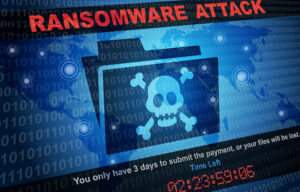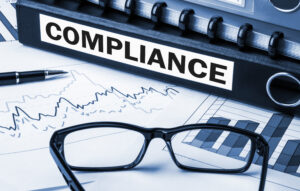In the digital age, businesses are increasingly reliant on technology to streamline operations, enhance productivity, and connect with customers. However, with the growing reliance on technology comes an ever-increasing threat landscape, with ransomware standing out as one of the most destructive cyber threats. Ransomware can cripple businesses, leading to financial losses, reputational damage, and even the collapse of once-thriving enterprises. In this blog post, we will explore the devastating impact of ransomware and how it can bring down your business.

Disruption of Operations
One of the most immediate consequences of a ransomware attack is the disruption of day-to-day operations. When a business falls victim to ransomware, cybercriminals encrypt critical data, rendering it inaccessible to the company. This prevents employees from accessing vital files, customer information, and operational systems, leading to a complete standstill in business activities. Without access to critical data and applications, businesses may lose valuable time and revenue as they struggle to regain control over their infrastructure.

Financial Losses
Ransomware attacks often demand hefty ransoms in exchange for the decryption keys necessary to restore data and systems. These demands can range from a few thousand dollars to millions, depending on the size and nature of the targeted business. Paying the ransom may seem like the quickest solution to regain control of the business, but it sets a dangerous precedent and doesn’t guarantee the return of stolen data. Even if the ransom is paid, there’s no guarantee that the attackers will honor their promise, leading to substantial financial losses.
Moreover, dealing with the aftermath of a ransomware attack can be costly. Businesses may need to invest in forensic investigations, data recovery services, and enhanced cybersecurity measures to prevent future attacks. Additionally, reputational damage from a publicized ransomware incident can deter customers, partners, and investors, resulting in further financial setbacks.

Loss of Customer Trust
Customers expect businesses to safeguard their sensitive data, and a ransomware attack signifies a significant breach of that trust. When a company falls victim to ransomware, it not only loses control of its data but also puts its customers’ personal information at risk. The fallout from such a breach can lead to customers losing faith in the business’s ability to protect their data, resulting in a loss of trust and loyalty. The erosion of customer trust can be difficult to recover from and may lead to a decline in sales and customer retention.

Legal and Regulatory Consequences
Ransomware attacks can also lead to severe legal and regulatory consequences. Many countries have stringent data protection laws that require businesses to implement robust security measures and notify authorities and affected individuals in the event of a data breach. Not adhering to these rules may result in substantial fines and legal consequences. In some cases, businesses may face lawsuits from customers, partners, or shareholders affected by the breach, further exacerbating the financial strain.
Business Reputation Damage
In today’s interconnected world, news of a ransomware attack spreads quickly through social media and news outlets. A publicized data breach can severely damage a business’s reputation, making it challenging to rebuild trust with stakeholders. Negative media coverage and word-of-mouth spread can create a lasting stain on the business’s brand, leading to reduced customer acquisition and tarnishing the company’s image for years to come.
Ransomware attacks pose a serious threat to businesses of all sizes and industries. The devastating impact of a successful ransomware attack can be felt across all aspects of a company, from financial losses and operational disruptions to tarnished reputations and lost customer trust. The best defense against ransomware is a proactive cybersecurity strategy that includes regular data backups, employee education on phishing and cybersecurity best practices, and robust security measures. By prioritizing cybersecurity, businesses can protect their assets and ensure their continued success in an increasingly digital world. Remember, the cost of prevention is always much lower than the cost of recovery from a crippling ransomware attack.

